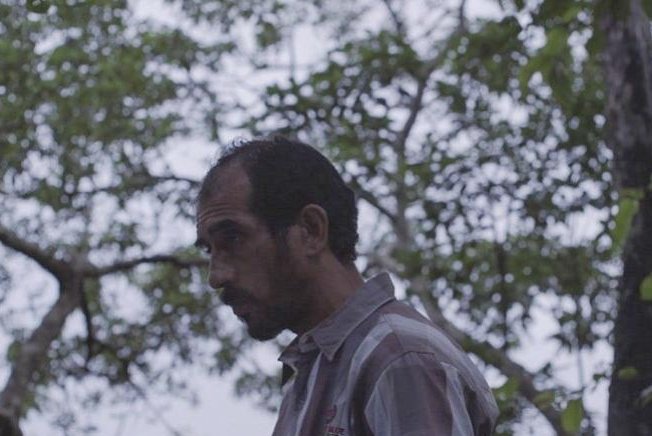1 of 5 | "Pedro" is the first Kannada-language film to appear at the Busan International Film Festival. Image courtesy of Busan International Film Festival
BUSAN, South Korea, Oct. 13 (UPI) -- Premiering at the 26th Busan International Film Festival, Natesh Hegde's Pedro is picking up critical buzz with its tale of a social outcast set in a remote forest village of rural India, a location rarely seen on screen.
The 25-year-old director shot the film, his first feature, around his tiny hometown of Kotalli in Karnataka State with a cast composed mainly of locals, including his father, Gopal Hegde, in the title role.
The film follows the story of Pedro, a glum electrician who seems most at home climbing poles to fix power lines high among the trees.
He is promoted into a new role as a caretaker on the estate of a powerful local landowner (Ramakrishna Bhat Dundi), a job that involves carrying a rifle and taking aim at monkeys and wild boar that wreak havoc on the property.
One night, fueled by private resentments and too much alcohol, he accidentally kills a cow -- a sacred animal in Hindu belief -- setting him on a downward spiral as the community turns against him.
"If you don't fit the norms of the society, you're an outcast," Hedge told UPI at the Busan festival. "And that is very difficult, so I'm trying to give a voice to that."
The ostracized Pedro tries to find a place to exist amid the rigid social codes and feudalism of his tiny village. But a mob mentality against him continues to swell, amplified by personal vendettas and a growing religious nationalism that has taken root in modern-day India.
"The dignity of people is being denied," Hegde said. "People are being excluded by figures of authority, even within the family, on the basis of religion or having to prove that you are patriotic."
A deep sense of place permeates Pedro, with long, immersive takes set in forests that teem with the sounds of birds and monsoon rains. Closely observed sequences in homes, roadside drinking dens and religious festivals move at a pace that captures the rhythm of life very far from the city.
Pedro is the first Kannada-language work to be screened at Busan, and Hegde said he never intended to try to smooth out the details of culture, customs and settings that give his film its unique character.
"Without nuance, you can't tell an authentic story," Hegde said. "Maybe you will lose some audience, or they will not completely get the film, but it's OK. They'll get the major chunk of it."
As the reach of popular culture grows ever more global, cinema needs more voices from remote places, Hedge said.
"You will only get the diversity that comes from people from different regions making films," he said. "Otherwise everything will be the same -- same language, same idioms. Without diversity, there is no hope of doing something new."
Pedro has struck a chord with global audiences. After the Busan festival, it will be screened at this month's BFI London Film Festival.
Hegde said that the film's growing acclaim won't change life back in Kotalli, where he still lives with his parents and sister. The self-taught director said he hopes that he can inspire other filmmakers from places far off the beaten track.
"My hope is just that some random boy from the village thinks that he can make a film," Hegde said. "That's more than enough for me."
Pedro is in competition for the New Currents prize at the Busan International Film Festival, a section that honors first or second features from Asian filmmakers. The festival runs through Friday, screening 233 films from 70 countries.














